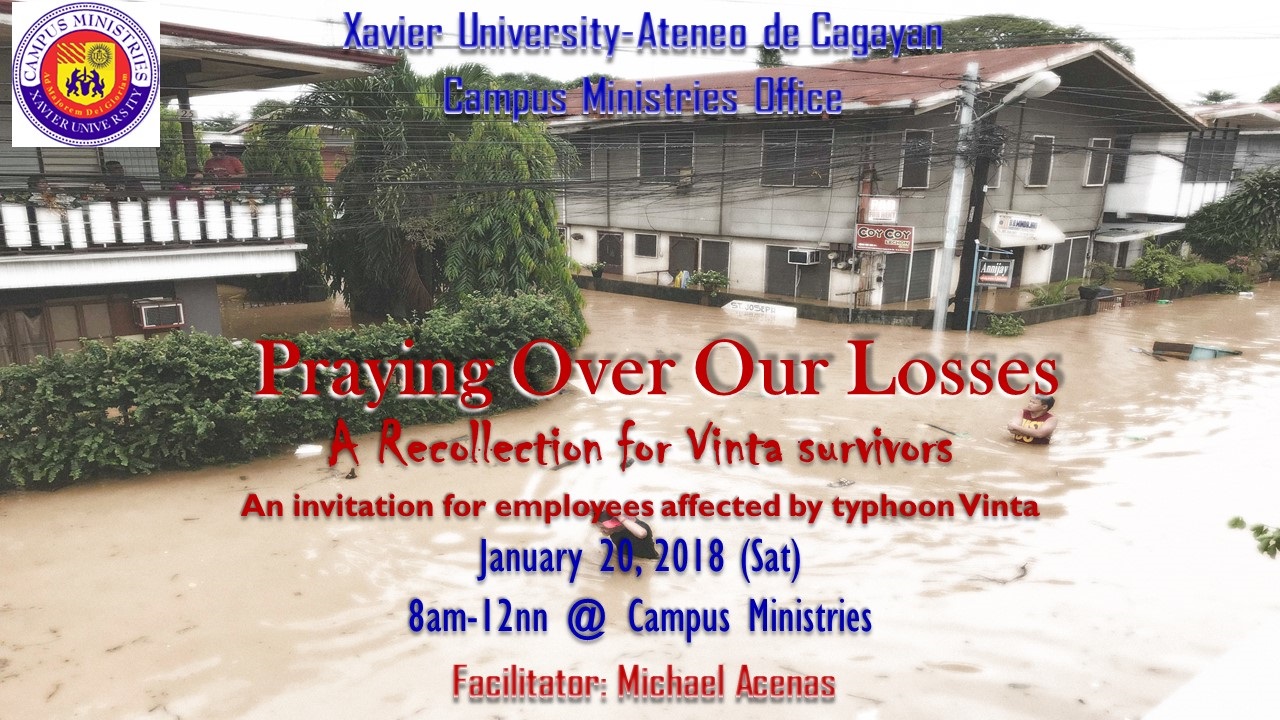
All experiences of loss would always involve a test of faith in our relationship with God. The depth and manner of clarification in this relationship differ on the kind of loss that we undergo. For people who established an intimate relationship with God, the manner of questioning toward God is different from those who took their relationship for granted. The experience of loss for those who had an intimate relationship with God is greater and deeper. People with strong religious inclinations would wonder why such experience of loss is allowed by God to happen when they have devoted their lives to Him.
As people struggle with the impact of loss, the questions like “why God,” “why me/us,” and “why now” will emerge. Then other questions persist for answers: “If God is and if he is truly a God of human beings, what is the source of evil, unmerited suffering in all its varied forms?” (Kasper, 159)1. Sometimes, as one continuously ask these questions, God’s response seems to be a deafening silence. In some instances, God remains hidden in the long period of time in one’s waiting.
The existence of suffering during our losses clarify the role of God in our life. For some theologians, the discussion about suffering in the world and evil is a failure of theodicy. For example, the failure of theodicy came to its peak during the Holocaust when millions of Jews were systematically murdered (Johnson, 51)2. It was unfathomable how God permitted this horrible event in history to happen. German theologians, like Moltman, Soelle, and Metz, who witnessed this unprecedented historical event have asked in unison questions like “Does God not want to stop it? If not, then God must not be all loving. But if God could not stop it and wants it, why does suffering continue to exist?” (Johnson, 52).
Given with this context, Xavier Ateneo Campus Ministries Office organizes a period of time (half day) when the affected employees of Tropical Storm Vinta are invited to come together and reflect over their spiritual experience as survivors of this calamity. This will be the time when participants express their questions on God in prayer and have the opportunity to share their prayer experience with other survivors.
This is open to all faculty, staff, and formators of Xavier Ateneo. To register, go to http://bit.ly/2Dl20My.∎
Sources:
1Kasper, Walter. The God of Jesus Christ. Bloomsbury Academic; New Edition
2Johnson, Elizabeth A. Quest for the Living God: Mapping Frontiers in the Theology of God. New York: Continuum, 2007